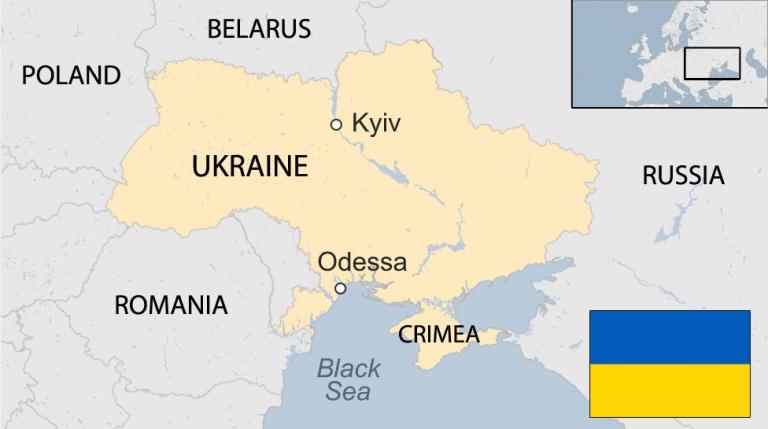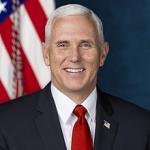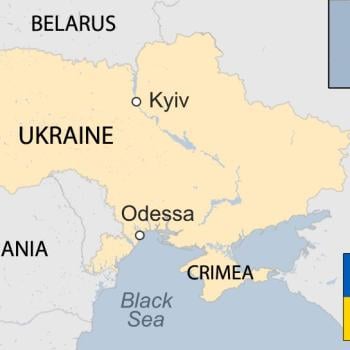Russian forces continue to surround major cities in Ukraine to bombard and flatten them with constant heavy artillery and other explosives. Two million Ukrainians have fled the country’s total population of 44 million people in only two weeks. Ukraine’s military forces are putting up such a courageous fight, with their President Volodymyr Zelenskyy becoming such a hero. Yet the situation looks pretty bad for Ukraine.
The UK’s Prime Minister Boris Johnson penned an op-ed piece yesterday in The New York Times entitled “Putin’s Act of Aggression Must Fail.” Johnson says therein that Putin’s wars in Georgia in 2008 and Ukraine’s Crimea in 2014 and various murders of individuals show concerning the West, “We have failed to learn the lessons of Russian aggression. For too long, we have turned the other cheek. No one can say we were not warned.”
Johnson lays out a six-point plan. It includes helping Ukraine defend itself, and increasing sanctions against Russia, all of which must result in Russia not taking over Ukraine. He concludes most convincingly, “accepting the results of Russian aggression merely encourages more aggression.”
It’s a sobering assessment. Several retired, U.S., military generals have been interviewed on TV in recent days who have assessed the situation likewise. They think Putin’s plans are to not stop at Ukraine but eventually invade and take over other Eastern European countries.
Since Vladimir Putin came to power in Russia at the turn of the century, he has been giving lectures and writing essays over the years about his understanding of Russian history and his vision for Russia’s future. He sees himself as sort of a messiah who will restore not just some semblance of the former Soviet Union but actually the Russian Empire of medieval times.
But this Putin vision goes against a foremost principle of the United Nations, which is that peoples of nations have a right to decide their form of government and therefore whether or not to remain independent of other nations. Putin in this century has clearly been violating that principle multiple times just as he is doing in Ukraine. Yet the Soviet Union and now Russia has always been a permanent member of the United Nations’ Security Council.
U.S. President Joe Biden just now announced that the U.S. will ban Russian oil and gas exports to the U.S. He added that U.S. allies may not be able to do that. Indeed, the U.S. almost is energy independent due to its oil and gas resources, but other nations, namely most European nations, are not so endowed. That is a major reason for Putin’s aggression. Over 50% of the Russian government’s revenue comes from the exploration, development, and exporting of its vast oil and gas reserves. And most of it is exported to Eastern Europe. In fact, Europe gets about 50% of its natural gas and 40% of it petroleum from Russia, and most of it flows through pipelines.
This predicament has allowed Russia to have Europe over a barrel, that is, a barrel of oil. It now becomes even more apparent that it has been a mistake for especially Germany to become so dependent on Russia for energy. This war in Ukraine will cause Europe to gradually wean itself off Russian energy resources, but it will take time. Perhaps pipelines will be constructed from the Middle East to Europe. One closer source would be the natural gas, and probably oil, resources deep down under the seabed off the Eastern Mediterranean Sea. Israel owns a considerable portion of it as well as Cyprus and Turkey.
In the meantime, mainland Europe’s energy needs in the near future looks pretty bleak starting next winter. And all of this is even now causing the price of a barrel of oil, and thus gasoline at the pump, to skyrocket.
So, the West needs to contain Russia’s forces that are trying to take over Ukraine while at the same time the West needs to try to avoid a nuclear war with Russia and get energy resources to mainland Europe. Biden, today, called for both more drilling of oil but also more development of alternate energy, such as from wind and solar, all of which takes time. It doesn’t look good.














